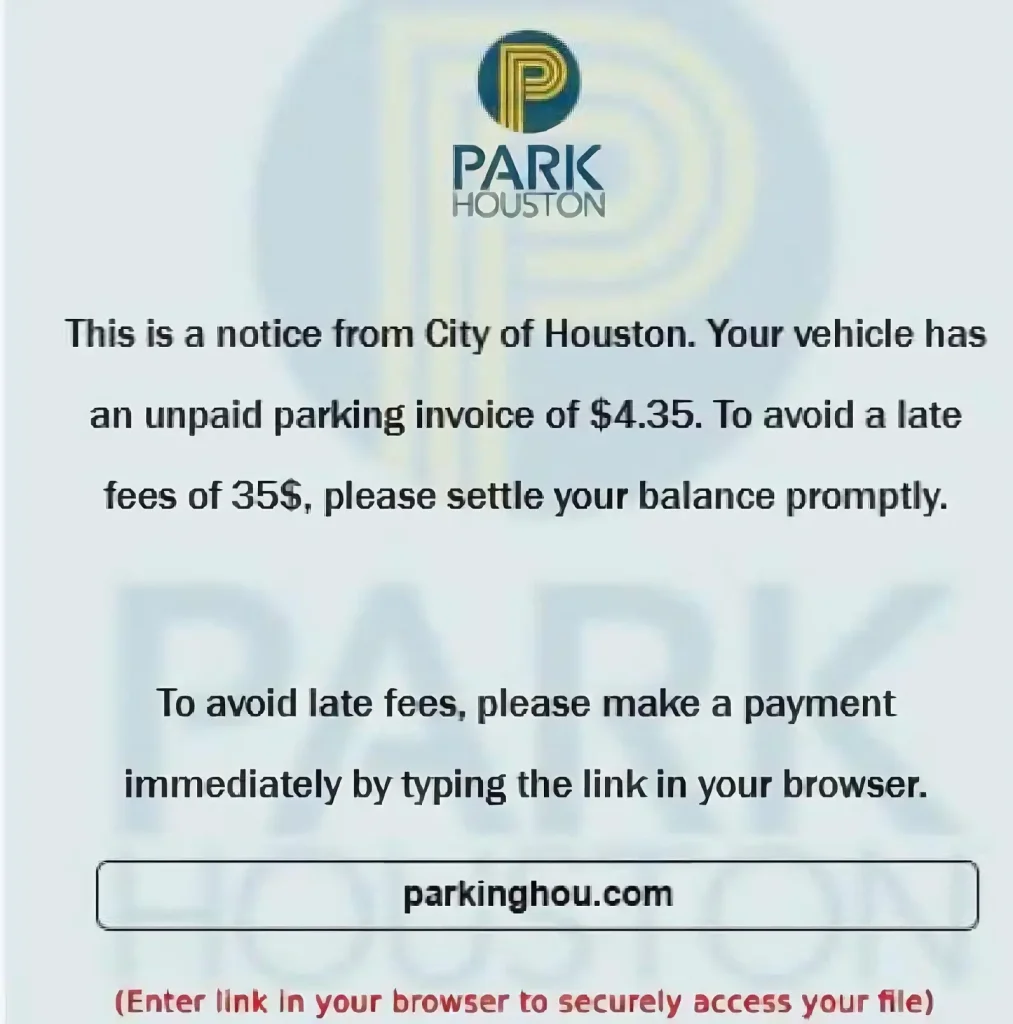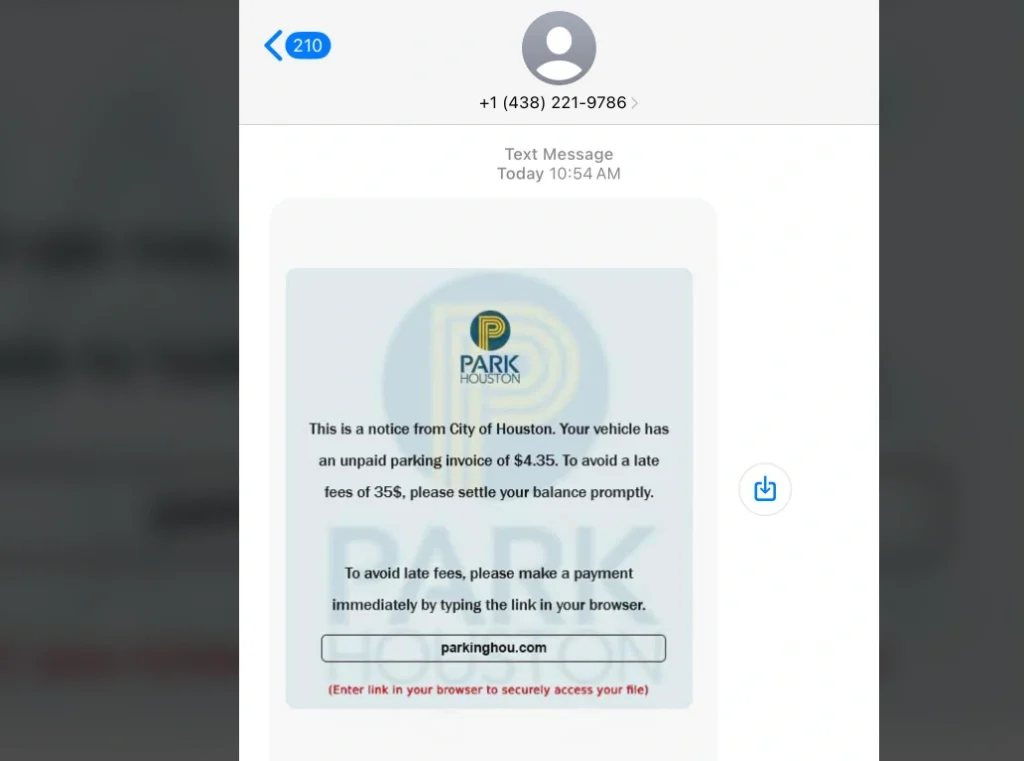Scam text messages are on the rise, and the “Park Houston Fine Text” is one of the latest tricks. If you got a message saying you owe a big parking fine and need to pay right away through parkinghou.com, be careful.
This article will explain what’s going on and how to stay safe.
What Is the Park Houston Fine Text?
The scam starts with a message saying you have an unpaid parking fine—often a large amount like $435—and warns that late fees will add up if you don’t pay soon.
The message directs you to a link, parkinghou.com, where you’re supposed to pay.
At first glance, the message looks real. It uses phrases like “City of Houston” and threatens legal action if you don’t act quickly. But there are clear signs it’s fake:
The texts often come from area codes outside the U.S., like Montreal, Canada. Local government offices wouldn’t use foreign numbers to contact you.
The link takes you to a fake site that looks like the official Park Houston page. The goal is to steal your credit card details, not process payments.
Park Houston has stated they never send texts to collect fines. They only use official channels, and their messages include clear details and opt-out options, never threats.
These scams work by creating panic. They want you to act quickly without thinking. Staying alert can help you avoid becoming a victim.

Our Review
The Park Houston Fine Text is a scam designed to trick you into sharing your financial information. It relies on fear and urgency to make you click the link.
Real messages from the City of Houston won’t ask for payments through shady links like parkinghou.com. Always double-check with official sources.
Messages from outside the U.S. are a clear red flag. No Houston government office would contact you this way.
The scam sites may look professional, but small mistakes—like grammar errors or misplaced dollar signs—show they’re fake.
Falling for these scams can lead to stolen money and identity theft. If you’ve already clicked the link or shared your info, take action right away.
What to Do If You’re Scammed
If you realize you’ve been tricked, don’t panic. Here’s how to limit the damage:
- Secure Your Accounts: Call your bank or credit card company to stop any transactions and protect your account.
- Report the Scam: Let the City of Houston know about the fake message. You can also report it to the Federal Trade Commission (FTC) and your phone provider.
- Check Your Credit: Look at your credit report to spot any suspicious activity. Consider signing up for credit monitoring to stay on top of things.
- Delete and Block: Don’t respond to scam texts. Delete them, block the number, and never click suspicious links.
1Super.Top is a website that says you can earn free Robux by completing tasks.








